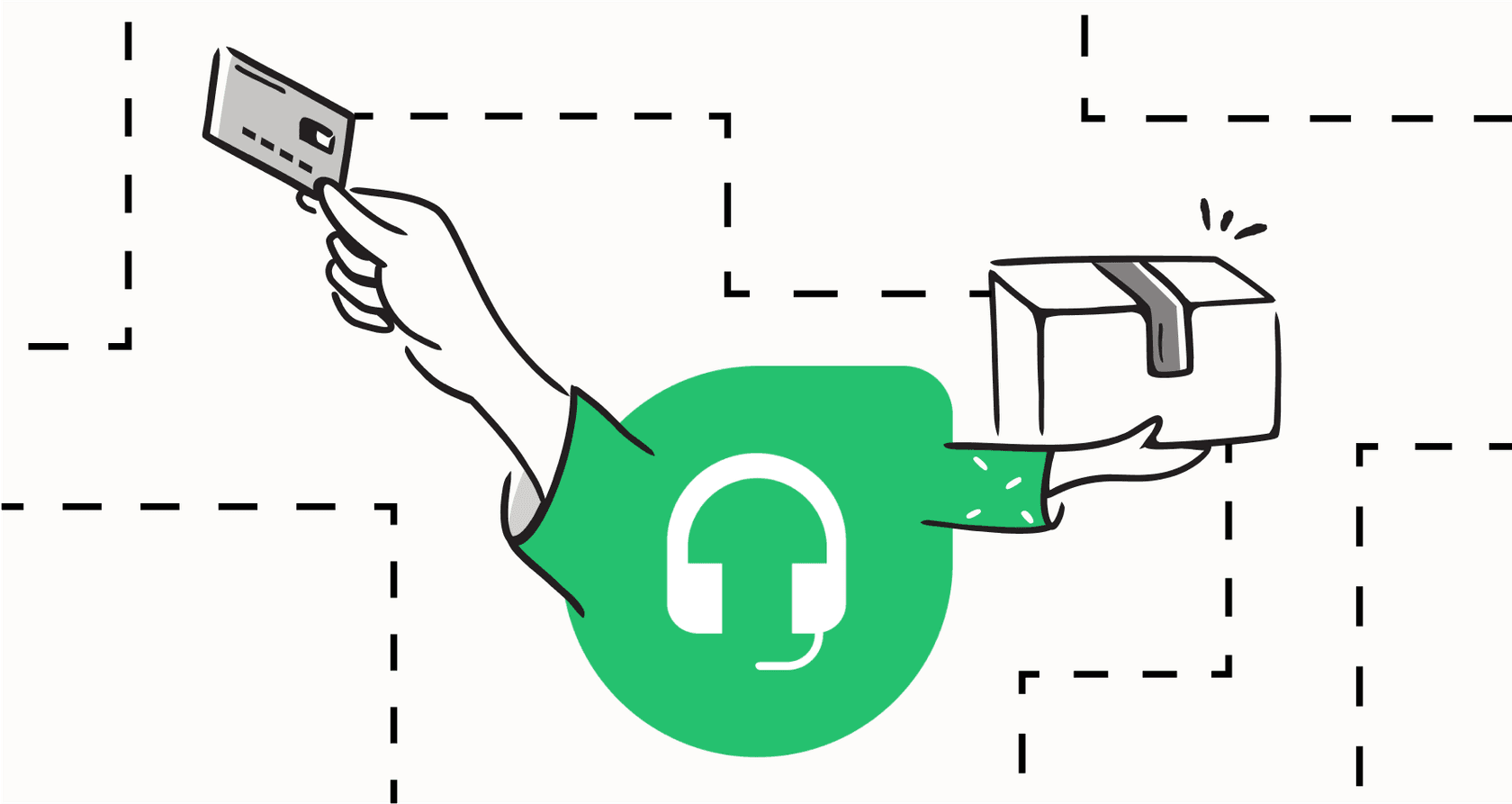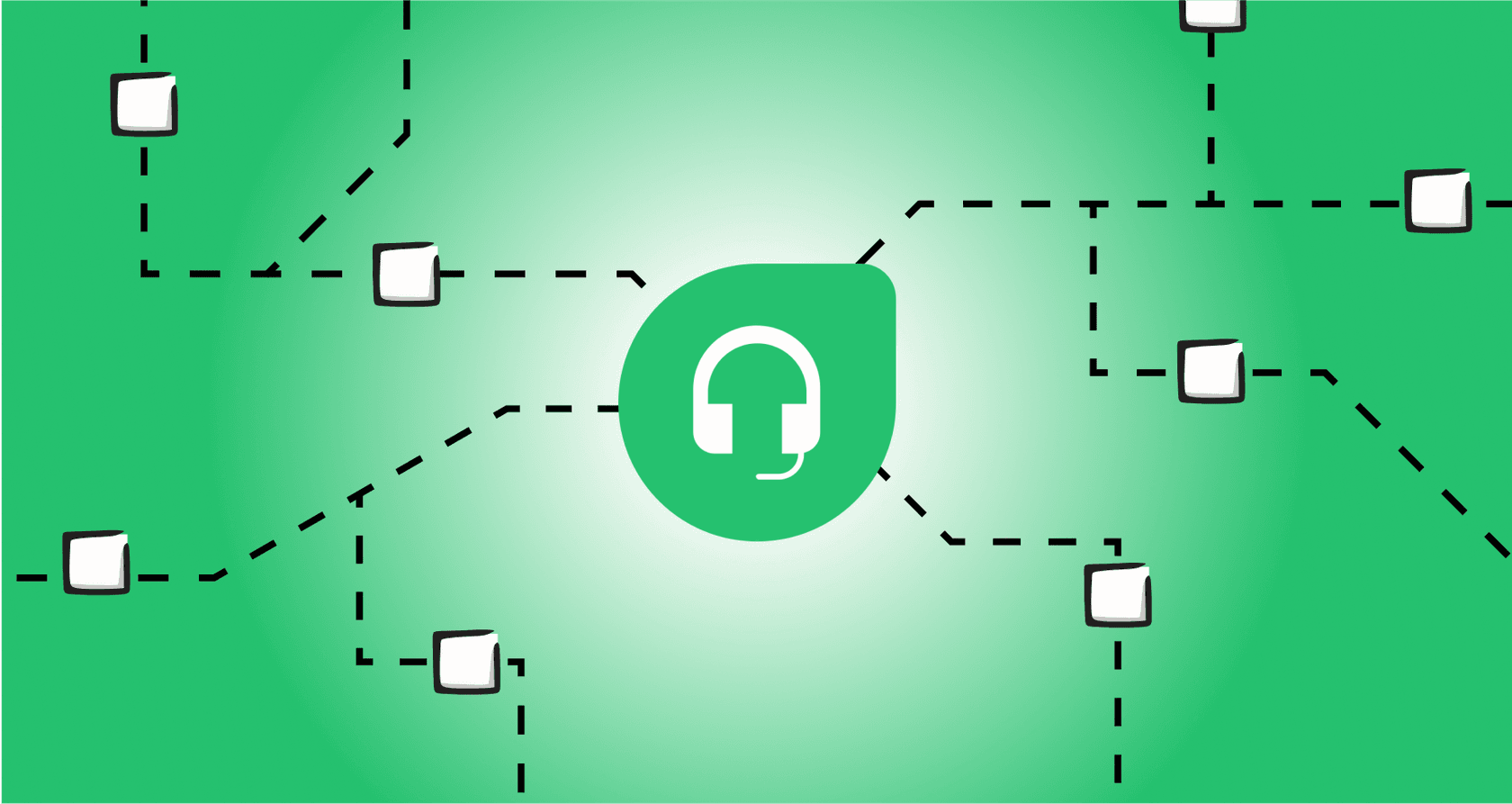Zendesk AI vs. Freshdesk AI support: A complete 2026 guide

Kenneth Pangan

Katelin Teen
Last edited January 16, 2026
Expert Verified

Picking the right AI for your helpdesk feels like a huge decision, doesn't it? It has the potential to completely change how your team works, helping them get things done faster and smarter. But when you're looking at two of the biggest names out there, Zendesk and Freshdesk, the choice can get complicated fast. Both have some serious AI muscle, but they're designed with different people in mind, for different kinds of teams, and they come with different pricing structures.
This guide is here to help you sort through it all. We’re going to put Zendesk AI and Freshdesk AI support side-by-side, looking at everything from their main automation tools to how you get them set up and how much they’ll cost you in 2026. By the end, you should have a much clearer idea of which one might click with your team.
We'll also throw a different idea into the mix: what if you could enhance your helpdesk with an additional AI layer? What if a flexible tool could complement your existing setup to get you even better results, working right alongside your chosen platform? Let's get into it.
What are Zendesk AI and Freshdesk AI support?
Before we dive deep, let's get a quick lay of the land for each platform.
What is Zendesk AI?
Zendesk AI is a robust and sophisticated set of tools built into the industry-leading Zendesk platform. It is designed to scale with businesses of all sizes, offering deep functionality for teams with complex support needs. Its biggest draws are using generative AI to summarize long ticket threads and draft replies, smart triage that automatically sorts and sends tickets to the right person, and AI agents that can answer common questions on their own.
You can think of Zendesk AI like a high-performance engine. It is built for a high degree of customization and can be woven into specific, large-scale operations. If you’re already using Zendesk, it is the most integrated way to add massive automation power to your workflow.
What is Freshdesk AI support?
Freshdesk’s AI, which they call Freddy AI, is built to be straightforward and incredibly easy to use. That’s a big reason why it’s popular with teams of all sizes. Freddy AI is all about making automation accessible for teams who want to get up and running quickly.
Its main features include Freddy Copilot, which gives agents suggestions and article links in real time as they type, and a no-code bot builder that lets you build and launch a chatbot without having to write any code. Freddy Insights also serves up useful analytics to help you see what’s going on. Freshdesk often includes these powerful AI features in its higher-tier plans, making it a solid choice if you're already using Freshdesk.
Zendesk AI vs. Freshdesk AI: Capabilities and automation
This is where you can really start to see the differences. Both platforms provide strong automation features, but they approach the support experience from different angles.
How Zendesk AI handles automation
Zendesk’s automation is incredibly powerful and enterprise-ready. It’s fantastic at intelligent triage, where it can figure out the intent, sentiment, and language of a ticket to send it to the right agent or department automatically. For large teams managing a high volume of requests, this level of precision is invaluable. The workflows can be customized extensively, letting you build out intricate rules that match your business processes perfectly.
This level of power means Zendesk offers incredible depth. Because it is so comprehensive, teams often find value in exploring the full range of settings in the Zendesk admin panel to get the most out of the system. While the AI is deeply integrated into the Zendesk ecosystem to ensure data security and consistency, some teams also look for ways to pull in knowledge from external sources like Google Docs or Confluence to supplement their internal knowledge base.
How Freshdesk AI support handles automation
Freshdesk goes for a simpler, more user-friendly approach. Its no-code bot builder is a great example: you can drag and drop your way to a working chatbot quickly, which is helpful for teams that need to deploy tools fast. Freddy Copilot is also intuitive, offering helpful tips during the ticket resolution process to help agents work more efficiently.
While it is easy to get started, Freshdesk's automation focuses on providing reliable, high-impact workflows that work out of the box. Additionally, Freddy AI is optimized for the Freshworks ecosystem, ensuring it works perfectly with the information you have within Freshdesk. For teams that want their AI to learn from internal guides in Confluence or notes in Google Docs, they can use additional configurations to bring that data in.
[YOUTUBE_VIDEO: https://www.youtube.com/embed/qfe9olzY7eg] This video explains how Freshdesk AI support simplifies customer service with its modern AI-assisted software.
The alternative: A flexible AI layer that works everywhere
One interesting option to consider is how you can expand your AI's knowledge. Built-in solutions are optimized for their own systems, but your company might have useful information stored in other places, from internal wikis and shared drives to solve past support tickets.
This is where a tool like eesel AI offers a complementary approach. Instead of being a replacement for your helpdesk, eesel AI acts like an intelligent layer that sits on top of the tools you already use, whether that's Zendesk or Freshdesk. This approach gives you a few additional benefits:
- It unifies your knowledge: eesel AI can connect to all your knowledge sources right away. You can train it on your Confluence space, Google Docs, and developer documentation, alongside your helpdesk history.
- You get flexible control: eesel AI provides a customizable workflow engine that works alongside your helpdesk. You can use a prompt editor to tweak the AI's tone and create custom actions that sync with your existing ticket fields.
By adding a tool like this, you don't have to choose between a powerful system and a flexible one: you can simply enhance what you already have.
Getting started: Setup, ease of use, and integrations
Rolling out a new AI system can feel like a massive project, so the implementation process is a key factor.
The setup experience
The setup process for Zendesk and Freshdesk reflects their different strengths. Zendesk is a mature, comprehensive platform, and getting its advanced features and AI add-ons configured precisely often involves a more detailed setup process within the admin menus. Freshdesk is designed for easy navigation, and setting up its robust automations is generally straightforward and accessible for non-technical users.
With either platform, you are making a commitment to their specific ecosystem. Both companies provide world-class support and documentation to help you through the testing phase to ensure the AI performs well before you go live with your customers.
The eesel AI advantage: Go live in minutes with zero risk
For teams that want to experiment with AI alongside their current helpdesk, eesel AI offers a very fast path to value.
- It’s truly self-serve: You can sign up for eesel AI, connect your helpdesk, and set up your first AI agent or copilot quickly. You can be up and running in a very short amount of time.
- It’s a one-click integration: eesel AI is designed to slide right into your existing helpdesk, meaning you don't need complex API work to get started.
- It has a powerful simulation mode: Before the AI ever interacts with a real customer, eesel AI lets you run a simulation on your past tickets. This shows you exactly how the AI would have answered, allowing you to refine your knowledge base with total confidence.
Comparing the cost: Pricing models and value
The way these platforms structure their pricing can have a big impact on your budget and how you measure ROI.
Zendesk vs. Freshdesk AI: Pricing explained
The pricing models for Zendesk and Freshdesk AI are distinct, reflecting their target audiences.
- Zendesk: The AI features are offered as a premium add-on to their core plans, starting at approximately $50 per agent, per month. Some advanced tools, like the AI Agent, use a pay-per-resolution model. This ensures you are paying for actual value and successful outcomes delivered by the AI.
- Freshdesk: Freshdesk bundles its Freddy AI features into higher plans like Pro and Enterprise. A plan with AI Copilot starts at $78/agent/month. This offers a very predictable cost structure for teams that are ready to commit to their higher-tier helpdesk plans.
Why a predictable pricing model matters
Budgeting is easier when costs are transparent. eesel AI offers a model that some teams find very easy to manage.
- No per-resolution fees: eesel AI’s plans are based on features and overall usage (measured in monthly AI interactions). Your bill remains consistent every month, regardless of how many tickets are resolved.
- Flexible and transparent: You pick a monthly or annual plan, and you get access to the core products, including the AI Agent, Copilot, and Triage.
Here’s a quick table to break down how the models stack up:
| Feature | Zendesk AI | Freshdesk AI | eesel AI |
|---|---|---|---|
| Model | Premium add-on to base plans | Included in higher-tier plans | All-inclusive feature tiers |
| Key Cost Driver | Per agent, plus value-based resolution fees | Per agent, tied to plan level | Monthly AI interactions |
| Predictability | Value-based (aligned with ROI) | High (predictable monthly cost) | High (fixed monthly or annual cost) |
| Flexibility | High (enterprise-grade and scalable) | Ecosystem-focused (optimized for Freshworks) | High (works with your existing helpdesk) |
The verdict: Which tool is right for you?
So, after all of that, which one should you go with?
Zendesk AI is a powerhouse built for the enterprise world. It is the gold standard for teams that need deep customization, massive scalability, and a mature, reliable platform. If you have complex needs and want a tool that can grow with you, Zendesk is an incredible investment.
Freshdesk AI support is an excellent, user-friendly option for businesses that want powerful automation with a straightforward setup. It's a fantastic choice if you want to hit the ground running within the reliable Freshworks ecosystem and value a platform that is easy for any team member to manage.
However, you don't necessarily have to choose one over the other. For many teams, eesel AI offers a way to get the best of both worlds. It provides enterprise-level power and the ability to connect to all your company's knowledge, while working perfectly within the helpdesk you already use. It enhances your current setup, giving your team a more capable AI assistant without the need for a platform migration.
Your next steps
If you’re ready to see how AI can enhance your support team, the best way to see the difference is to try it for yourself.
You can start a free eesel AI trial to see just how easy it is to get going, or book a quick, no-pressure demo to see how it can complement your Zendesk or Freshdesk setup.
Frequently asked questions
Freshdesk AI support is particularly well-suited for businesses looking for straightforward, user-friendly automation. Its ease of use and no-code bot builder make it accessible for teams without dedicated developers, allowing them to implement AI quickly and efficiently.
The primary features of Freshdesk AI support include Freddy Copilot, which offers real-time suggestions to agents, and a no-code bot builder for creating chatbots easily. It also provides Freddy Insights for clear analytics on your support operations.
Freshdesk AI support focuses on a streamlined, user-friendly automation approach, making it easy to build chatbots and workflows with its no-code tools. It is highly accessible and designed to help teams get value from AI with minimal complexity.
No, Freshdesk AI support is known for its relatively easy setup experience. Basic automations and chatbots can be configured quite straightforwardly, even for non-technical users, making it appealing for teams needing to deploy AI quickly.
Freshdesk AI support features are typically bundled into their higher-tier plans, such as Pro and Enterprise. Pricing is generally per agent per month, with plans including AI Copilot starting around $78/agent/month, offering a more predictable cost structure than some competitors.
Freshdesk AI support is designed to work seamlessly within the Freshworks ecosystem, meaning it primarily draws its knowledge from within the Freshdesk platform itself. This ensures that the AI is using verified, support-specific information to help your customers.
Share this post

Article by
Kenneth Pangan
Writer and marketer for over ten years, Kenneth Pangan splits his time between history, politics, and art with plenty of interruptions from his dogs demanding attention.





